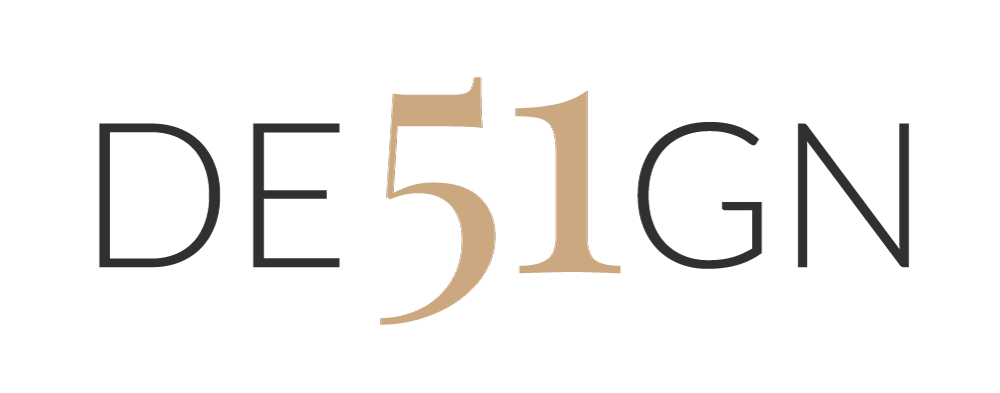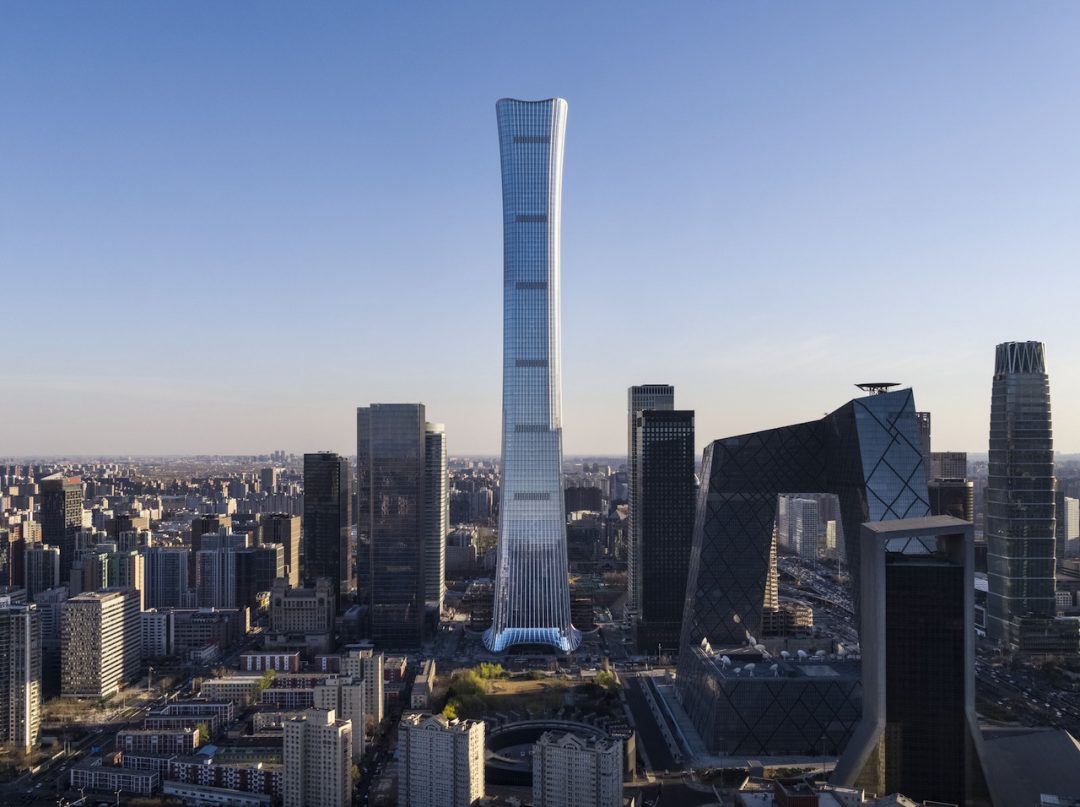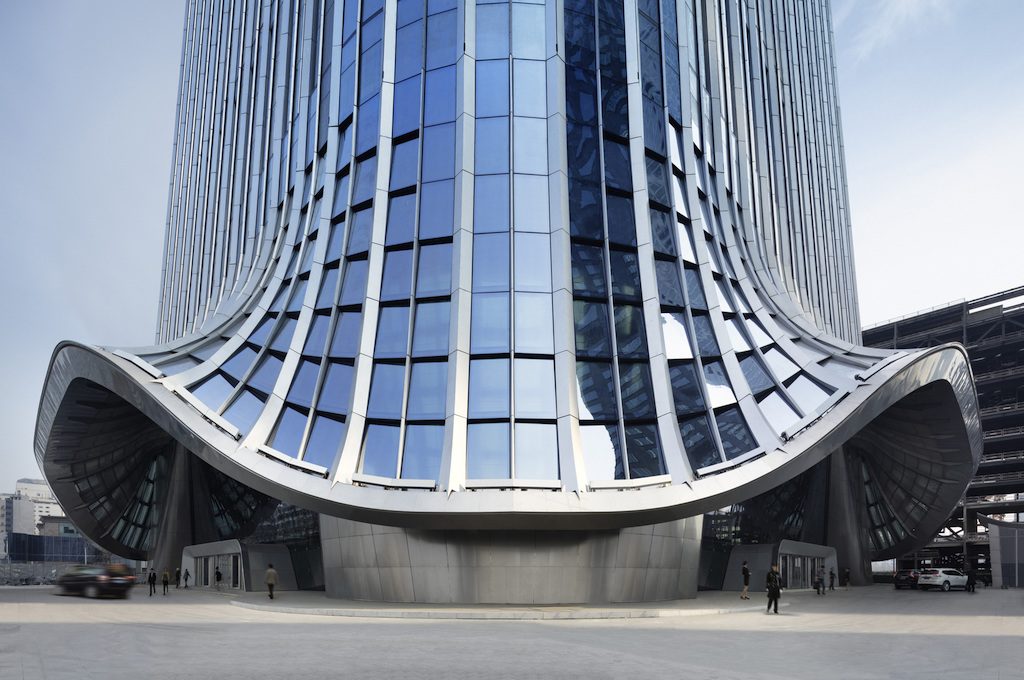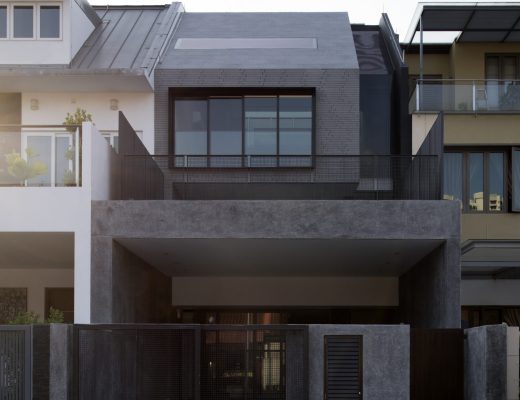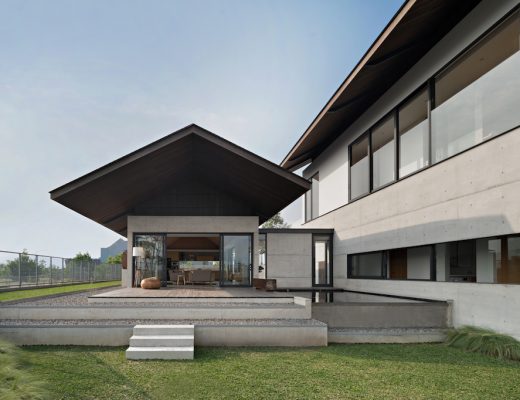The 528-meter-tall CITIC Tower in Beijing designed by Kohn Pedersen Fox (KPF), has been unveiled as the city’s tallest building. Also known as the China Zun, it draws cultural inspiration from the “zun”, a ritual vessel originating in Bronze Age China. 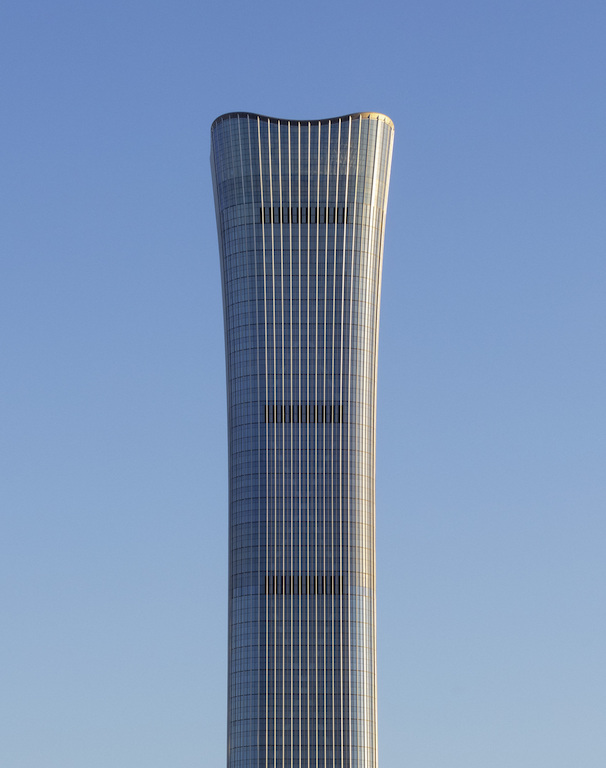
KPF, known for its supertall buildings, with a portfolio that includes five of the 11 tallest structures in the world, imagined for the CITIC Tower, a vase-like form, varying from 78-meter-wide at the base to 54-meter-wide at the center and finishing up with 69-meter-wide at the top. The form also takes into account the location’s seismic zone by putting in place a square plan with rounded corners.
CITIC Tower, located in the northern part of the dense region of Beijing CBD, connects to a “vast underground transportation network, linking together a pedestrian passageway system, a B2-level roadway, and four subway lines across three stations”, just like its neighbouring buildings. 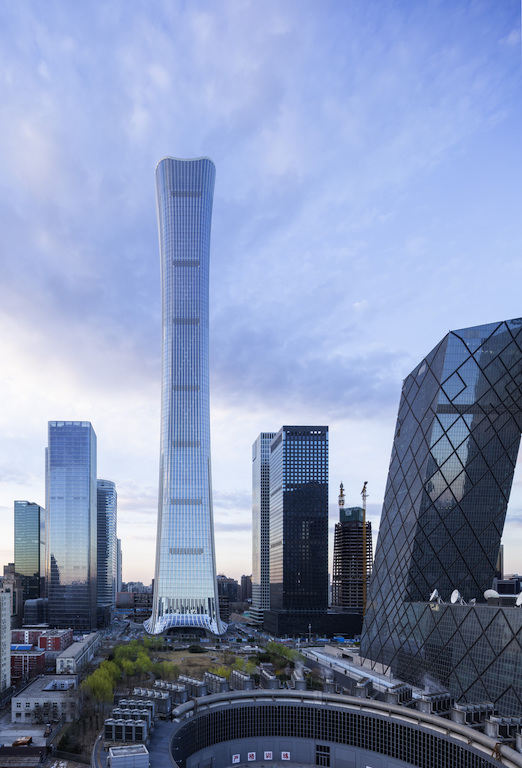
On the ground level, the lobby’s curve creates a dramatic effect, providing a “backdrop to the pedestrian experience”. The unique façade’s expression is introduced in the interior canopy, following the same logic of curvatures. Containing the headquarters for CITIC Group and CITIC Bank, the tower also incorporates office spaces and a multipurpose business centre. 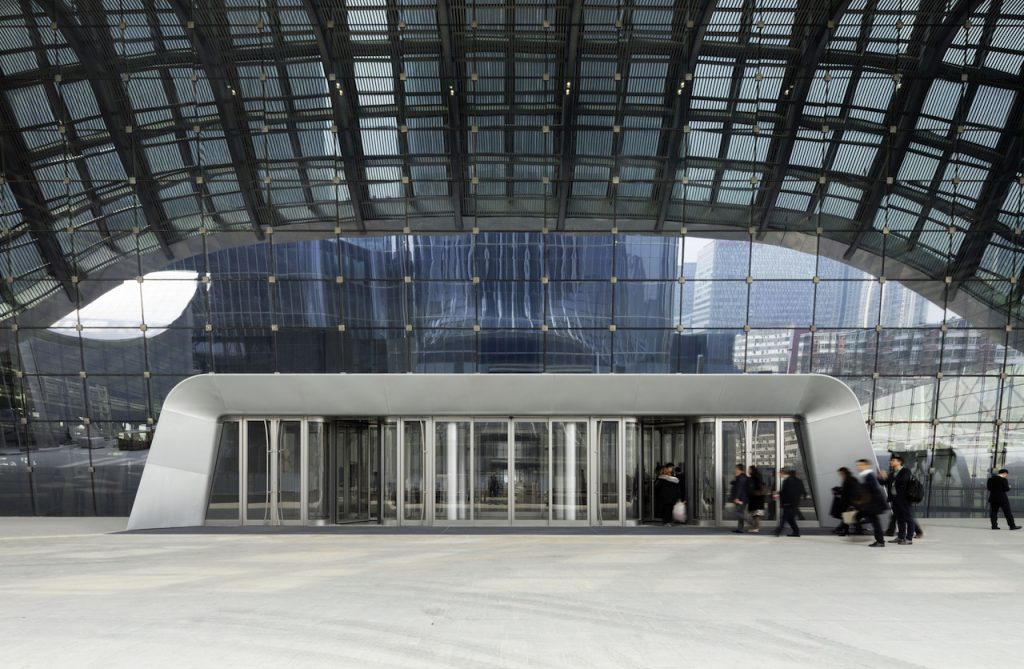
KPF design principal says: “Imagining the city’s tallest tower as a representation of its history and people, we approached the building as a public entity in our design. The curtain wall, a light and delicate layer, folds out at the base and signals the building’s various entry points. It appears to float above the ground plane, evoking the human scale and activity that occurs at its base and ultimately promoting public engagement with the architecture and the district on a whole. This synchrony of tower and landscape, coupled with its simple, sculptural form, define CITIC Tower.” 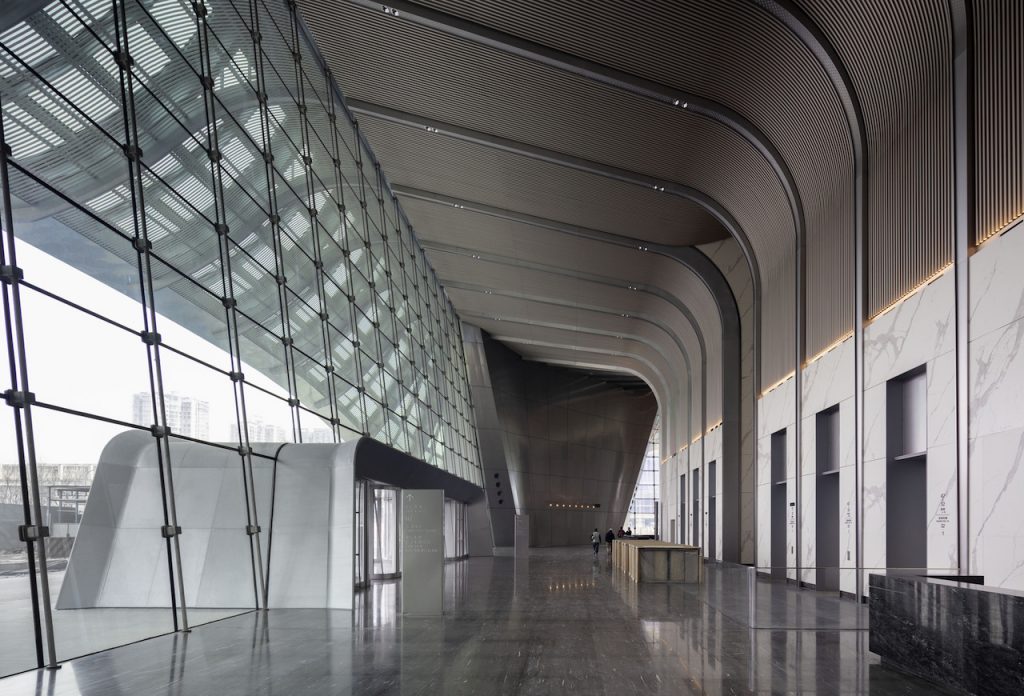
On the challenges of the project, Li Lei, one of the design directors states that their goal for the tower was “to create a centerpiece for the new CBD that would elicit harmony with the historic capital while proposing aspirational and contemporary architecture”. 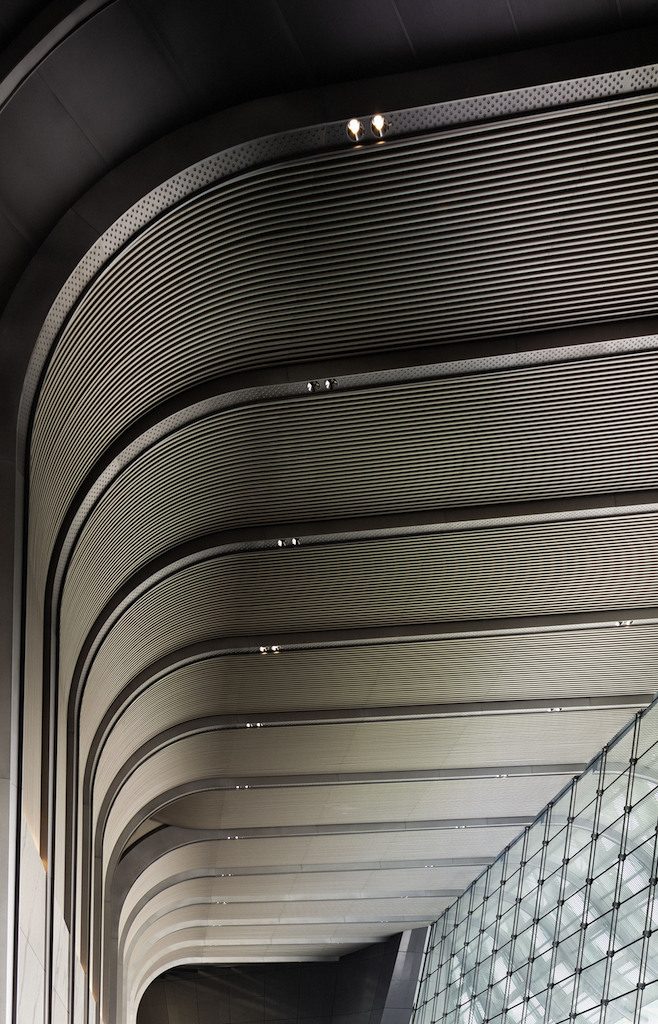
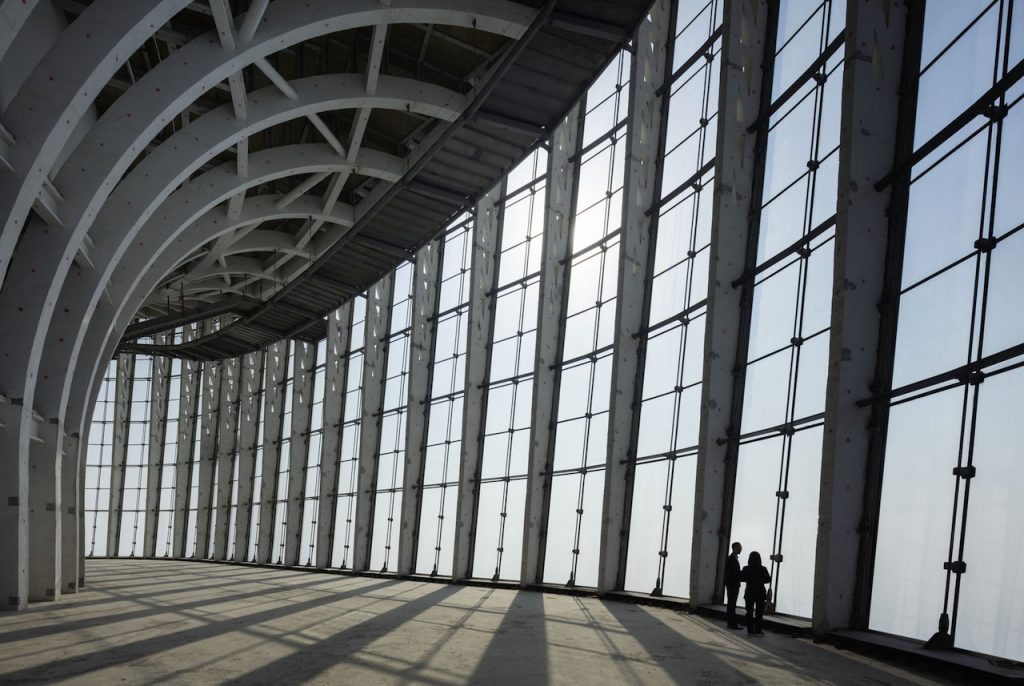 She continues by declaring that the firm “abstracted the zun’s elegant form and focused on its gradual transformation, applying this motif across immense scales: from the tower’s overall massing, all the way down to its curtain wall, entry vestibule, and interior detailing.” In fact, for KPF, CITIC tower is integrated within its context through its “skyline profile, dynamic street-level presence, transparent lobby and observation hall”.
She continues by declaring that the firm “abstracted the zun’s elegant form and focused on its gradual transformation, applying this motif across immense scales: from the tower’s overall massing, all the way down to its curtain wall, entry vestibule, and interior detailing.” In fact, for KPF, CITIC tower is integrated within its context through its “skyline profile, dynamic street-level presence, transparent lobby and observation hall”.
